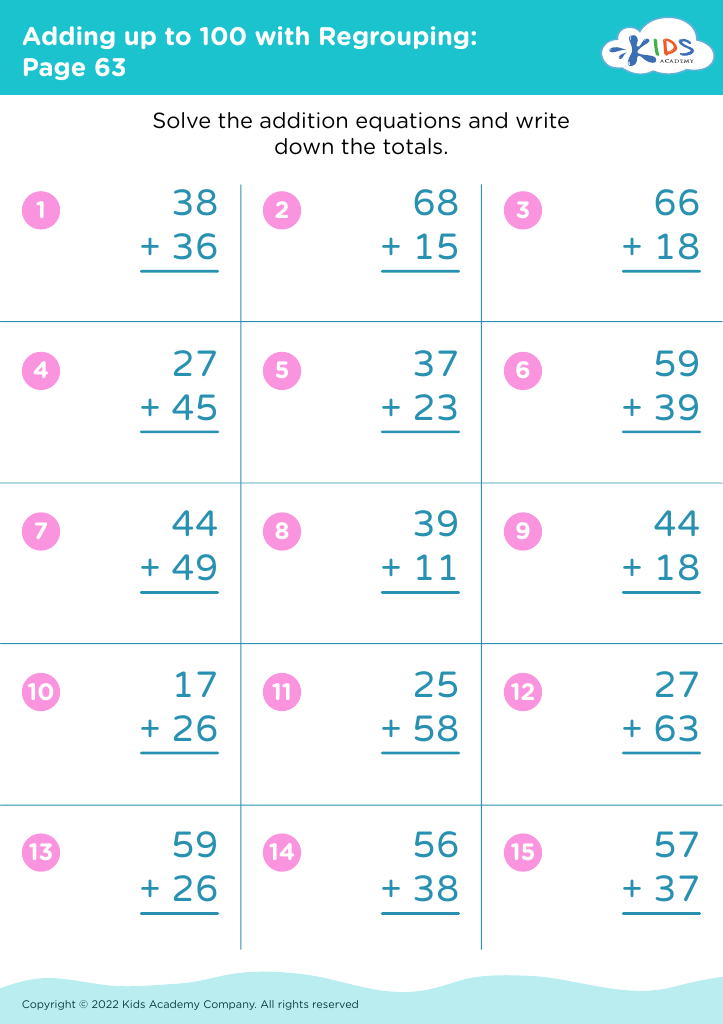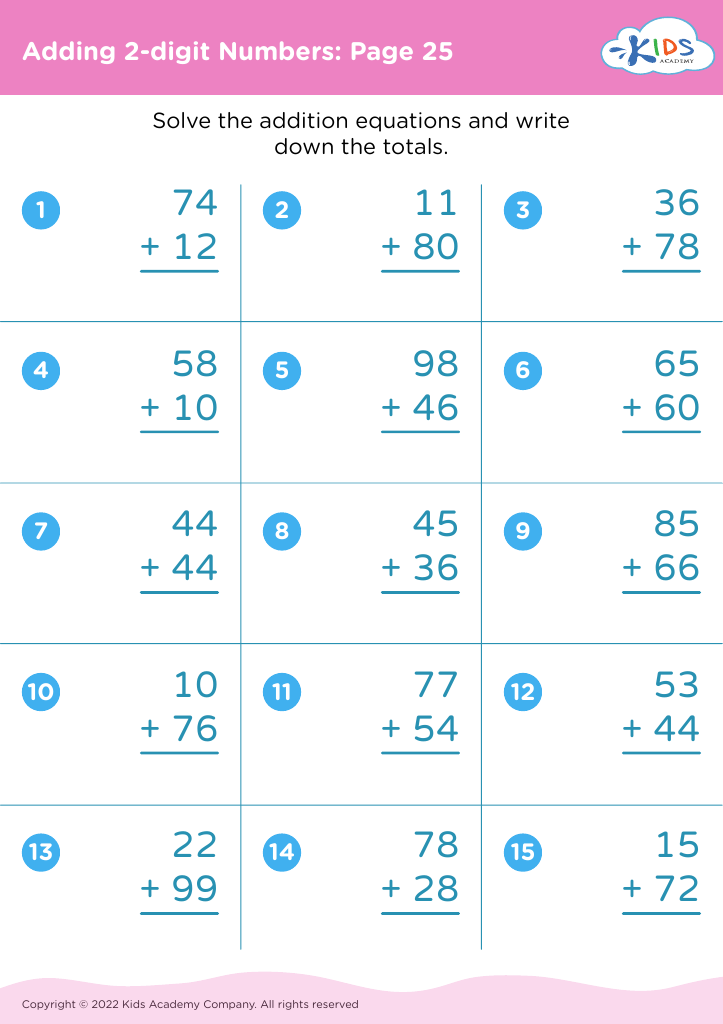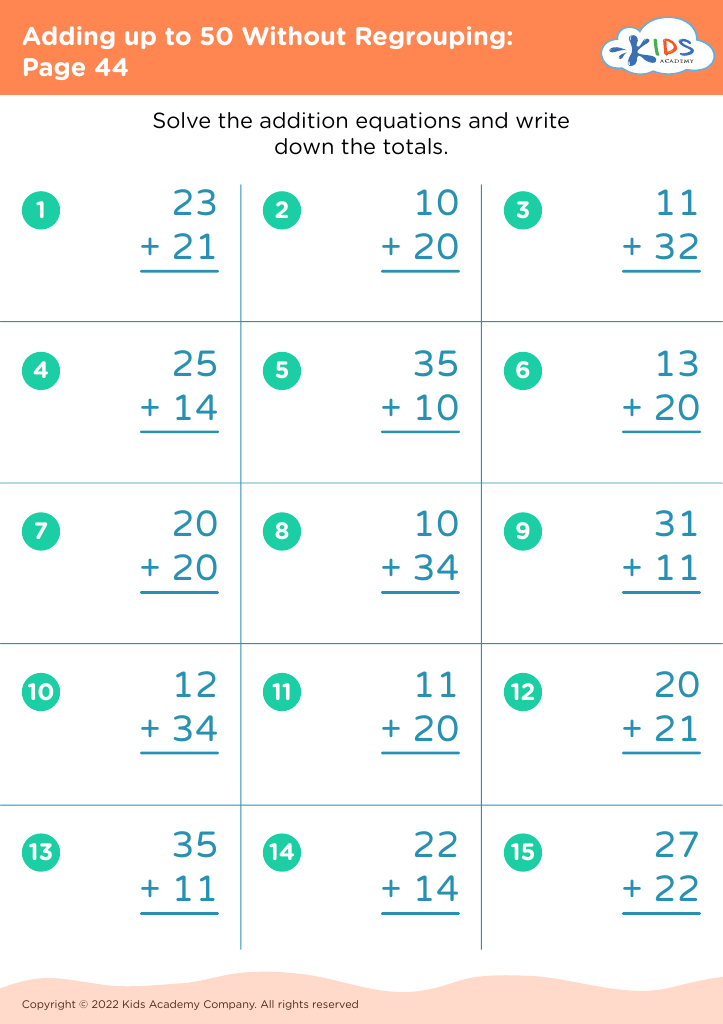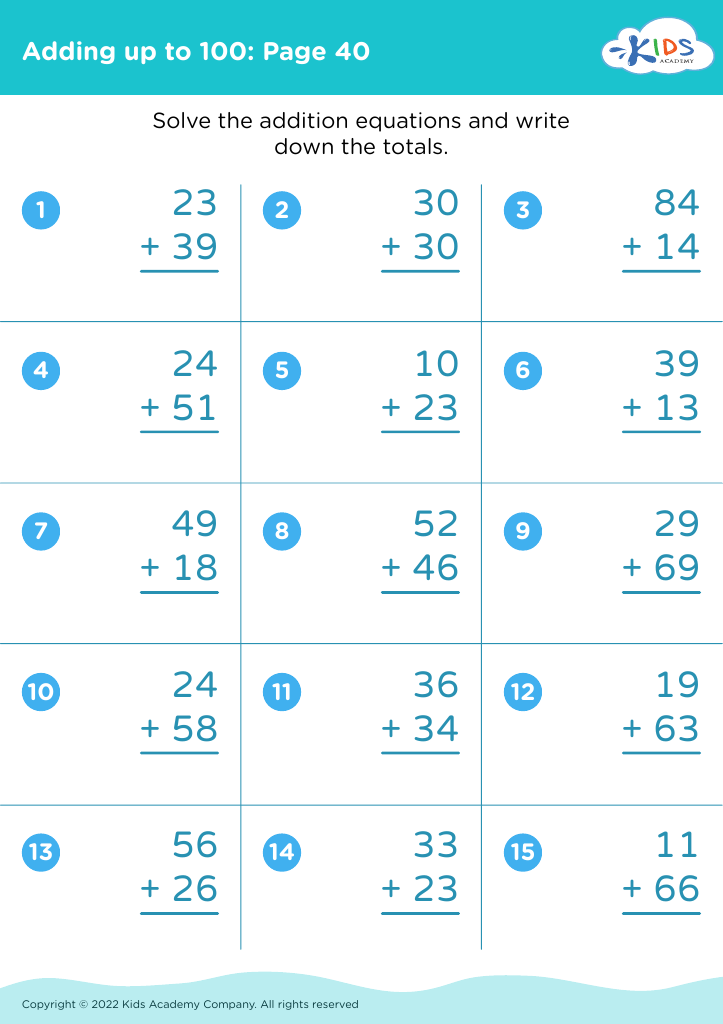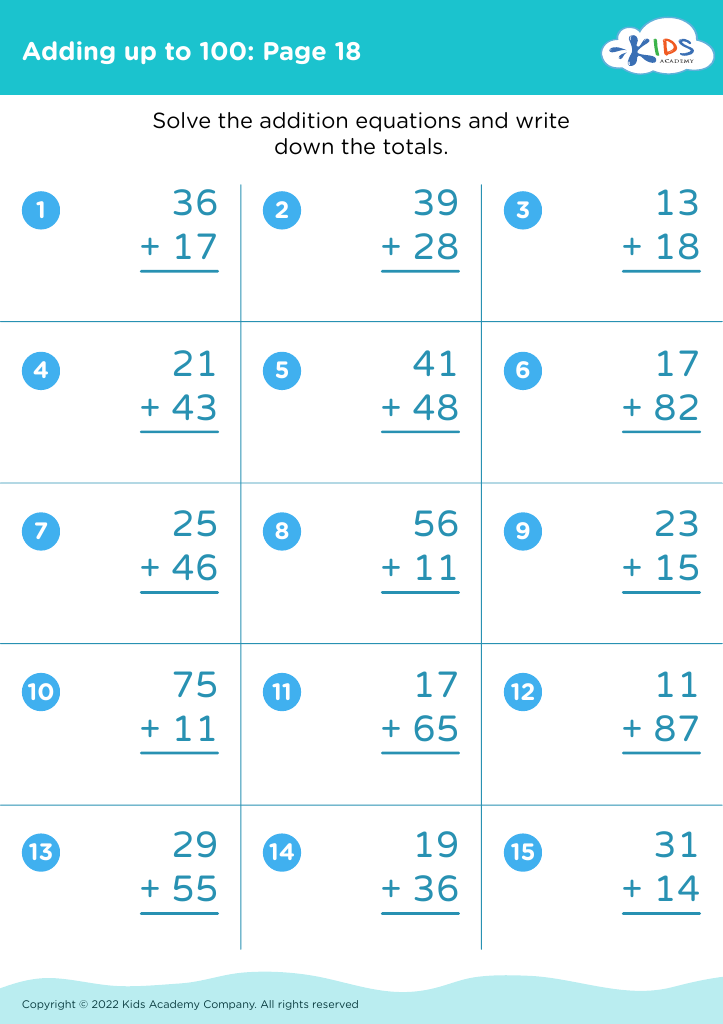Enhance number recognition Addition Worksheets for 8-Year-Olds
17 filtered results
-
From - To
Boost your child’s math skills with our Enhance Number Recognition Addition Worksheets designed specifically for 8-year-olds! These engaging and interactive worksheets focus on improving number recognition while reinforcing essential addition concepts. Kids will enjoy solving a variety of problems that challenge their understanding and build confidence in math. Ideal for classroom or home practice, our worksheets offer colorful designs and diverse exercises tailored to maintain your child’s interest. Help your young learner master critical math skills and foster a love for numbers with our expertly crafted addition resources. Unlock their potential today and watch their mathematical abilities flourish!
Enhancing number recognition and addition skills in 8-year-olds is crucial for several reasons. At this age, children are transitioning from basic arithmetic to more complex mathematical concepts. A solid foundation in number recognition helps them understand and navigate these concepts effectively, fostering confidence and independence.
Parents and teachers play a vital role in this developmental stage. Effective number recognition allows children to identify numbers quickly and accurately, laying the groundwork for successful addition and subtraction. Mastery of these skills not only supports daily life activities, such as calculating prices during shopping or measuring ingredients in cooking, but also serves as a gateway to more advanced topics like multiplication, division, and problem-solving.
Moreover, strong addition skills contribute to overall cognitive development. Engaging in math-related activities boosts critical thinking abilities, enhances memory, and promotes logical reasoning. This can lead to improved performance in science, technology, engineering, and mathematics (STEM) disciplines.
Furthermore, recognizing numbers and understanding addition cultivates a positive attitude toward math, reducing anxiety and apprehension. By prioritizing these skills, parents and teachers can equip children to excel academically and instill a lifelong appreciation for mathematics. Ultimately, fostering these abilities prepares children for future challenges and opportunities in their educational journey.



